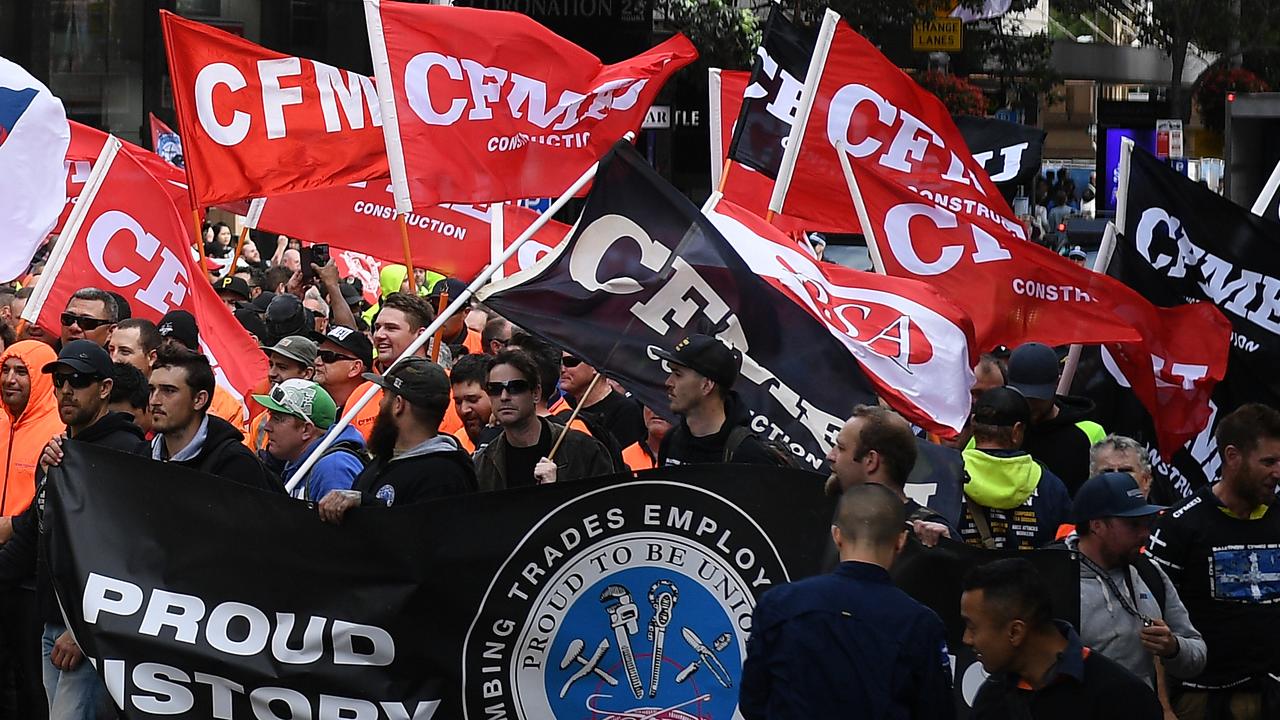O’Dwyer warns Boral company over redundancy threat to workers
A Boral subsidiary has been given a formal warning for unlawfully threatening 100 workers with redundancy.

Boral subsidiary De Martin & Gasparini risks being excluded from tendering for Commonwealth-funded construction work if it commits a further breach of the federal building code.
Jobs and Industrial Relations Minister Kelly O’Dwyer issued a “formal warning” to the NSW concrete pumping and placement company yesterday after the Federal Court found in September that it unlawfully threatened to make 100 workers redundant.
Ordering DMG to pay $30,000 to the construction union, Federal Court judge Michael Wigney found the company’s threat to make the workers redundant was designed to instil fear in the workforce.
The minister’s warning means DMG risks being excluded from tendering for Commonwealth-funded building work for any future breaches of the code.
Australian Building and Construction Commission head Stephen McBurney said it was imperative that all building industry participants comply with the law.
“Workplace laws are there to protect all building industry participants equally, whether they are workers, employers or unions.” Mr McBurney said.
“In this instance, the contravention of the law also constitutes a breach of the 2016 Code. Companies that do not abide by the law run the very real risk of being excluded from tendering for Commonwealth funded work.”
DMG threatened to make the workers redundant after a majority voted down changes to an enterprise agreement that the company sought to be compliant with the federal building code.
Companies that were not compliant could not bid for Commonwealth building work.
Justice Wigney found the breach of the Fair Work Act, which carried a maximum $63,000 penalty, was “very serious”.
“There could be little doubt that De Martin & Gasparini was put in the unenviable position that it and its related companies would be unable to perform any Commonwealth Government funded building work after 1 September 2017 if it was unable to vary the enterprise agreement,’’ he said.
“That would, undoubtedly, have been financially and commercially very damaging, if not almost catastrophic, not only for De Martin & Gasparini, but also Boral and its related companies.
“De Martin & Gasparini was effectively put in that difficult position through no fault of its own. The Enterprise Agreement had been negotiated and entered into well before the Code was finalised.”
He said the difficult position that DMG “found itself in did not, and does not, excuse or justify the unlawful action it ultimately took”.
“It does, however, tend to explain it. The action was, in a sense, an ill-conceived, poorly considered and rather desperate response to the difficult circumstances that De Martin & Gasparini found itself in.’’ he said.
As events transpired the impugned actions taken by DMG were ultimately entirely unnecessary as the parties agreed on changes to make the agreement code compliant before September last year.
“The contravention involved senior management of, not only De Martin & Gasparini, but also its parent company, Boral.’’ he said.
“The contravention was, however, an isolated event and was not in any sense systematic or part of a course of conduct. Nor was it the product of inadequate or defective compliance systems.
“Rather … it was the product of rather exceptional circumstances and an ill-conceived or poorly considered response to those circumstances.
“De Martin & Gasparini did not profit in any way from the adverse action and, ultimately, nobody suffered any substantial loss or damage. The damage caused by the contravention was essentially limited to the upset, distress, and anxiety felt by the workers during the period that the threat to dismiss them hung over their heads.”




To join the conversation, please log in. Don't have an account? Register
Join the conversation, you are commenting as Logout